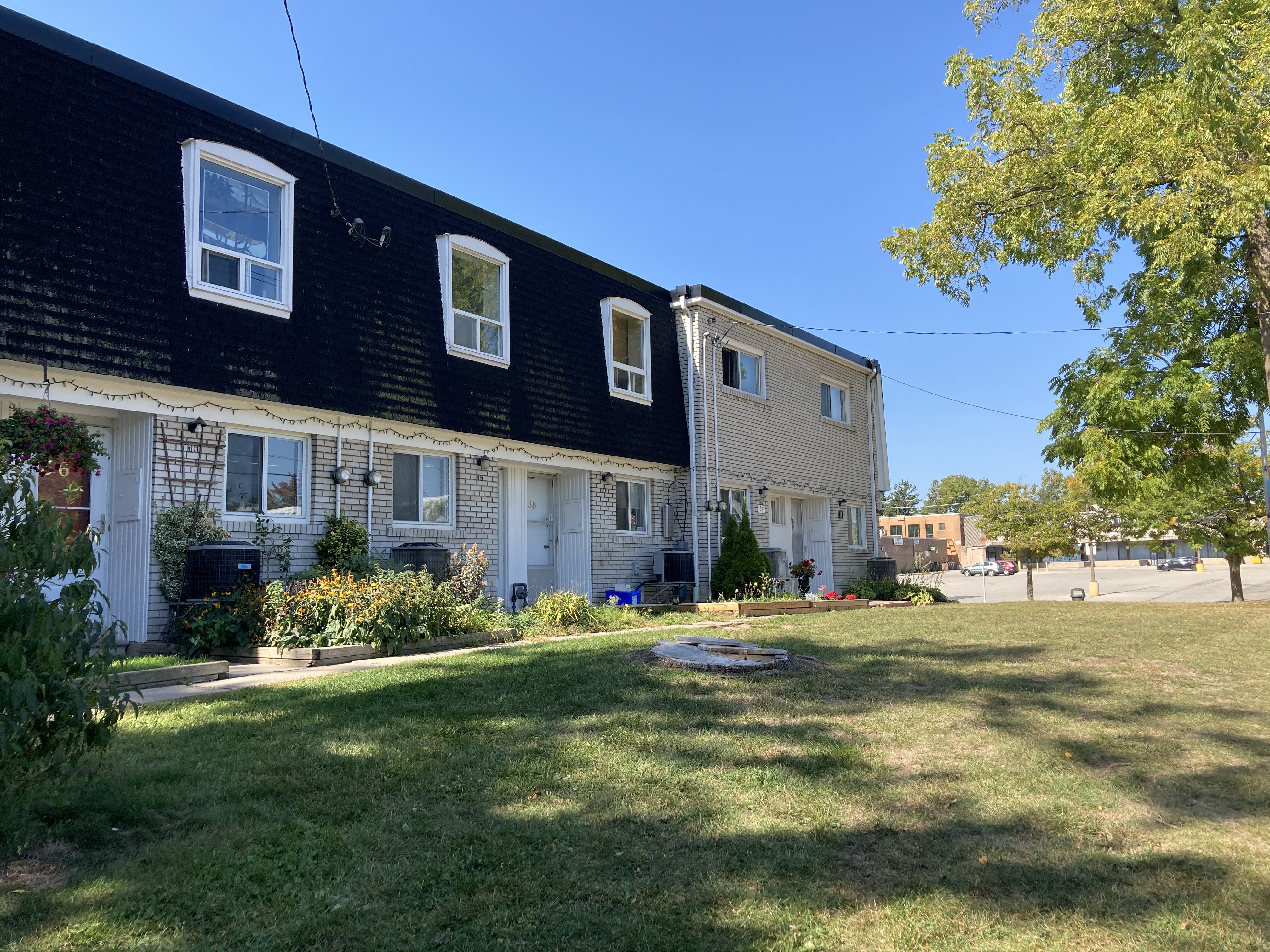
Housing affordability, it seems, is front page news almost every day. Oakville was dinged for it in a recent Globe and Mail feature on livability.
It costs a lot to live here. Despite having higher than average incomes, Oakville residents spend more of their incomes on shelter than many other Canadians. Having less left over after housing costs affects quality of life.
Mayor Burton has said that if housing is selling (and it has been), then it is affordable.
But to whom? Not to our children who want to raise families near their grandparents, or not without significant help. Oakville's racial diversity has improved a great deal in recent years, but what of our socio-economic diversity?
If journalists, teachers, nurses, people working in arts and culture, young people or people who work for not for profits or charities or in the service industries can’t live in our community, are we not poorer for it?
Is the wealth of a community to be measured only in average incomes and real estate value? And do we want to evolve to an invisible version of the kind of gated communities that offend many of us in the United States?
Canada, Ontario, and especially Oakville are in the midst of a genuine housing crisis. The symptoms are increased homelessness, greater food bank use, and financial stress, all of which will lead to division and social unrest.
The long-term consequences are greater and more persistent hereditary inequality, and the sorting of people into fixed socio-economic strata, and even more social instability. Crime rates will increase, and everyone regardless of income will be less safe.
High housing costs, whether purchase price or rent, are a result of demand exceeding supply. Demand is being driven by high immigration levels. Affordability is also exacerbated by stagnant productivity in our economy, another indirect accelerant of inequality.
Local governments, including Oakville’s, are being blamed for the lack of supply. "Restrictive zoning" and "NIMBYism" are the scapegoats. But isn’t all zoning restrictive: isn’t that the point of zoning? And isn’t a resident who bought a home based on the neighbourhood zoning reasonably entitled to expect no radical changes in his or her "backyard"?
Meanwhile, Oakville has grown faster than most of our neighbours in the past five years and is poised to grow 17% in the next five, faster than at any time since the Ford plant arrived in the 1950s. We are adding housing units. And many units are serviced and have building permits, but have not been built.
The province, which has all the power over land development, has moved aggressively, ostensibly to open up land for development. The Progressive Conservative government under Doug Ford seized upon the housing crisis to open up the greenbelt, to implement special Ministerial Zoning Orders overriding local government, and to rewrite the carefully developed official plans of regions, cities and towns.
It also reduced the ability of municipalities to have growth pay for growth, raising the fear that existing residents would be taxed to cover the infrastructure needed for new housing.
And it bestowed "strong mayor" powers on the council leaders of municipalities. Until then only one vote on council, dependent on powers of persuasion and the moral authority of having been elected by the community at large, Mayors now can overrule council to ensure provincial priorities are served.
Much of this has had to be reversed, owing to accusations of corruption and cronyism, as it appeared the decisions would benefit a small group of well-connected developers. Under the scrutiny of opposition parties and the auditor-general, the Ford government is in full retreat, and there is even an RCMP investigation into the processes that led to this debacle. The housing crisis, real as it is, appears to have been good cover for a donor reward programme.
Meanwhile the federal government, rightly being held partly responsible as it sets the immigration targets, wants to be seen to be acting to address the housing crisis.
Housing Minister Sean Fraser has announced a $4 billion dollar housing accelerator fund. Oakville applied for some of this money to help offset the costs of growth, including the reduction in development charge revenue.
The Oakville application, however, was found wanting, as the federal government too blames "restrictive zoning" and asks that our community abandon elements of its planning, developed over many decades of hard work and consultation with residents, and informed by intimate knowledge of the character and dynamics of our community. The kind of knowledge local councillors and planners have more of than Ottawa mandarins or provincial policy makers.
Read more here: Should town accept more density in exchange for $36 million
Our MP for (Burlington and) North Oakville, Pam Damoff, intervened at Oakville council recently to exhort our local councillors to negotiate with the federal government, for fear of losing this largesse. She clearly cares about Oakville and wants to ensure we get our share of the funds.
A former municipal councillor herself, Ms. Damoff must be all too familiar with the impotence of town council in the face of the province's edicts and the infamous Ontario Land Tribunal (formerly Ontario Municipal Board).
Now, her government urges council to surrender "exclusionary zoning" and "building height limits" (which amounts, in our view, to giving up any controls that might create any kind of unique local character to the community), to access these federal funds.
In an email to Oakville News, she rightly points out that the province has mandated change, whereas Oakville has chosen to apply under the Housing Accelerator programme. It is true the Federal government has taken a carrot rather than a stick approach, but when the carrot is millions of dollars, and municipal governments are under financial pressure to fund the costs of growth without raising property taxes, the effect is the same (her protestations that this is not an erosion of municipal authority notwithstanding.)
In any case, the federal government does not have at its disposal the kind of powers over municipalities the province has, so this might be seen as making a virtue out of necessity.
Bonnie Crombie, another former municipal politician, has just been selected to lead the Liberal Party into the next provincial election. Faced with a deadlock at Mississauga council on this very issue, Ms. Crombie exercised her strong mayor powers to access the federal funds by surrendering zoning controls.
This doesn't suggest there will be much to choose on this file between a possible Premier Crombie and the current occupant of the job with respect to provincial control, although we wouldn't expect her approach to trigger RCMP investigations.
Now, Oakville has done what it inevitably had to do, and agreed to the new conditions.
In response to questions from Oakville News, the Mayor expressed disappointment that for other municipalities whose applications have been approved, many of the desired changes were already in place in Oakville, so Oakville is expected to do more. We are essentially being penalized for already meeting many of the growth targets others had not. We already have grown and project further growth well above the provincial average.
"The previous Minister praised us as a leader in delivering new homes and invited us to be an early applicant," writes Mayor Burton. "The CMHC team praised in writing our application. Our leadership in housing progress has been achieved without changing our zoning standards. If that's what it takes to get money to reduce the impact on property taxes from growth, they get to make the rules for disbursing their money."
At the January 22nd Council meeting, most councillors seemed resigned to accepting the key demand, for four units as of right throughout the town, including in single family home neighbourhoods. (You can watch the full meeting online here.)
The province had already mandated three, and there has been little take up. The Mayor quoted his wife, a professor at TMU, as saying that the difference between three and four units as of right was $36 million.
(As-of-right is a blanket zoning designation that removes the exclusionary zoning that generally prevents single-family house neighbourhoods from installing multiplexes, basement apartments, granny flats, laneway houses or other modifications to buildings that increase individual residences on a property.)
However, Councillors Elgar, Chisholm, Duddeck and Nanda voted against. They were obviously frustrated at their impotence to control development in their own community (ostensibly their job).
Councillor Elgar expressed the fear that developers could now buy up clusters of single-family homes and put in banks of fourplexes, dramatically changing the character of stable existing neighbourhoods, outside the reasonable expectations of residents.
There may not have been much uptake so far, but if there is money to be made developers will move to make it, and there will be nothing the town can do to stop them. That will shorten the time to get shovels into the ground compared to developments that require zoning changes or plan amendments. That is a further incentive for developers, who normally face long delays with large sums at risk.
Read more here: Should your neighbour be allowed to build a fourplex on his single family lot?
This of course is the desired outcome by the upper tier governments. It will add housing stock, but at the expense of local autonomy, with existing residents sacrificing control over their community and indeed the quality of life they have worked to earn, to accommodate future residents.
The issue is yet another demonstration of the broken nature of our planning regime, in which the conflict has in the past been between the province and the town. With the federal government added to the mix, our local government, in spite of our well above average housing growth, finds itself doubly scapegoated.
The Honourable Anita Anand, Federal MP for Oakville and President of the Treasury Board, gave this response to Oakville News: "Minister Fraser’s letter opens a dialogue, and I look forward to the Town’s response, identifying initiatives which will increase housing availability in Oakville. The Town’s forthcoming response will hopefully ensure that local knowledge and priorities are reflected in housing growth here."
As the process of making the required zoning changes is initiated, we know our community and its elected officials will be making every effort to do just that, and we appreciate MP Anand's awareness of the issue.

Housing availability and affordability are a significant issue for the future of our children and our country. We commend the provincial and federal governments for recognizing this and for taking action. Financing the costs of growth is hard, and the $36 million is more than welcome.
That said, these pages have long held that even if Oakville cannot choose whether or how much to grow, provided we meet the growth targets imposed by the senior levels of government (and we have), including the targets for affordable housing, we should be given considerable latitude to use our local knowledge to direct the form of that growth: in harmony with our view of our community.
Oakville has grown and is ready to grow to meet the demands of immigration and the provincial allocation of population targets. It has done so while respecting the character of established neighbourhoods and envisaging and facilitating density in the vicinity of transit hubs. And it has faced down considerable resident NIMBYist resistance in its efforts to do the right thing.
It is our view that upper tier governments need to be less prescriptive and to stop micromanaging municipalities. Set the housing supply targets, and reward achieving them, but let the people close to the community determine the best local approach to doing so.
Let municipal governments govern, rather than simply implement policies imposed from above.


